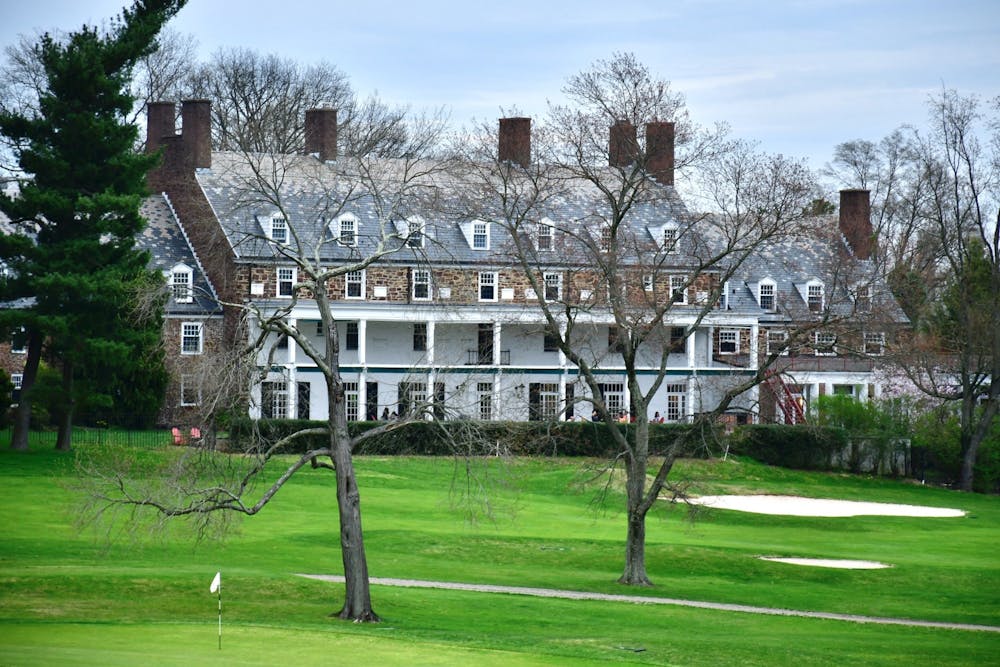Although the position of Peer Academic Advisor (PAA) has been historically unpaid, the Office of the Dean of the College (ODOC) originally offered a $360 stipend at the beginning of the semester to offset an unexpected increase in workload due to the online semester. In light of concerns about PAAs being unfairly overworked, the stipend has increased to $960 for the entirety of the fall semester.
In an email to all PAAs on Sept. 1, Cecily Swanson — Associate Dean of Academic Advising for ODOC — announced that PAAs would receive $20 per hour for an expected four hours of weekly work, to be paid on a biweekly basis.
According to Deputy University Spokesperson Mike Hotchkiss, the decision to implement a stipend first came in response to the new first-year program, Entryways, a supplement to the online semester meant to highlight the University’s academic community.
“Peer Academic Advisers (PAAs) have a central role in one component of Entryways, called College 101,’” Hotchkiss explained in an email to The Daily Princetonian. “That has significantly increased their responsibilities compared with a normal, on-campus semester.”
Among PAAs’ new responsibilities are attending the weekly faculty-led “First-Year Community Colloquium,” leading live discussions on a weekly basis to address academic transitions, and moderating weekly discussion boards on Canvas in which first-years critically respond to the colloquia.
“Normally, the PAA role is an uncompensated, volunteer role (though PAAs do receive two extra meal swipes per week during a normal, in-person term),” Hotchkiss wrote. “Due to these significant, new responsibilities within the pilot Entryways program, and due to the highly unusual nature of our virtual fall term, we decided to offer the PAAs compensation for their work this fall. PAA feedback was an important factor in this decision.”
According to Hotchkiss, the stipend will be adjusted in the spring to account for an expected decrease in PAA workload.
Prior to the raised stipend, many PAAs took to the anonymous Facebook group, Tiger Confessions#, to express their grievances with the new workload.
“Can the PAAs like rise up and demand more pay? The college staff is just shoving extra responsibilities on us because of the pandemic but [our] pay is literally the same as any other year,” read the anonymous Tiger Confession post #22827 on Aug. 29.
Another anonymous post claimed that constant online programming overworked PAAs and exacerbated Zoom burnout.
“We didn’t sign up to do all these programs every week for that little stipend,” Tiger Confessions post #22782 on Aug. 28 read. “I feel like they just gave us a bunch of extra responsibilities and didn’t even ask whether that would be possible for us.”
Two PAAs who spoke to the ‘Prince’ expressed gratitude for the promptness with which the University responded to their concerns and implemented a higher pay rate.

“Being a veteran PAA, I wasn’t expecting a stipend and wasn’t going to fight for one, but I’m grateful for the new PAAs who were especially outspoken about advocating for us,” said a PAA in Forbes College. “My decision to stay on was definitely influenced a lot by the financial compensation because of my family’s finances.”
Despite the creation of a stipend for PAAs, they noted that the Zoom burnout continues to adversely affect them along with their fellow PAAs.
“Sometimes, this rigid structure makes it feel like my Zees are items on a check-list,” the Forbes College PAA told the ‘Prince.’ “We lose a lot of the personal trust and empathy over Zoom, and I can feel the burnout on both sides.”
A PAA in First College echoed these sentiments, noting that their performance both as a PAA and as a student has suffered significantly.
“The brain can only do so much,” they said. “Obviously, I’m not paying as much attention in my classes as I should be.”
Despite the difficulties that have come with the new role, the First College PAA noted a continued motivation to work with and for their zees.
“They’ve brought new energy to me,” they said. “I still find it really rewarding.”
Both PAAs were granted anonymity due to the nature of their employment by the University.








